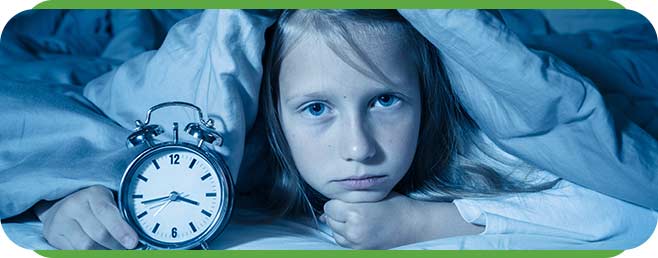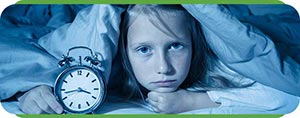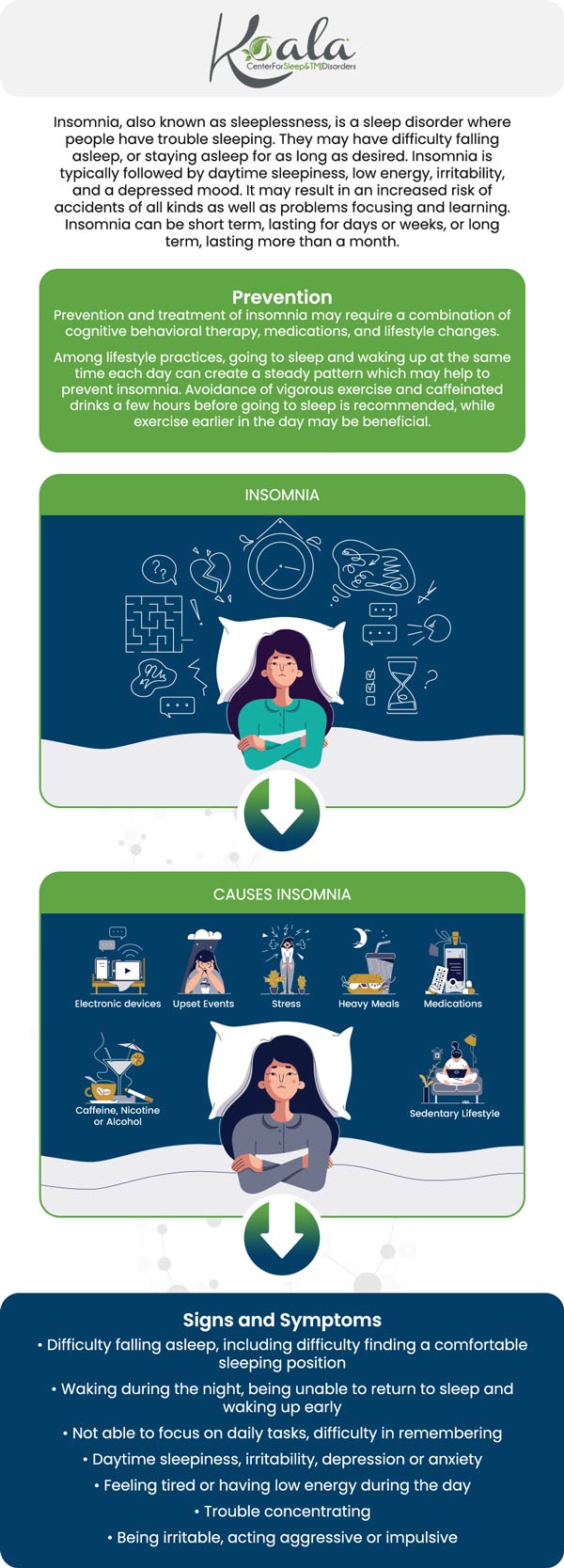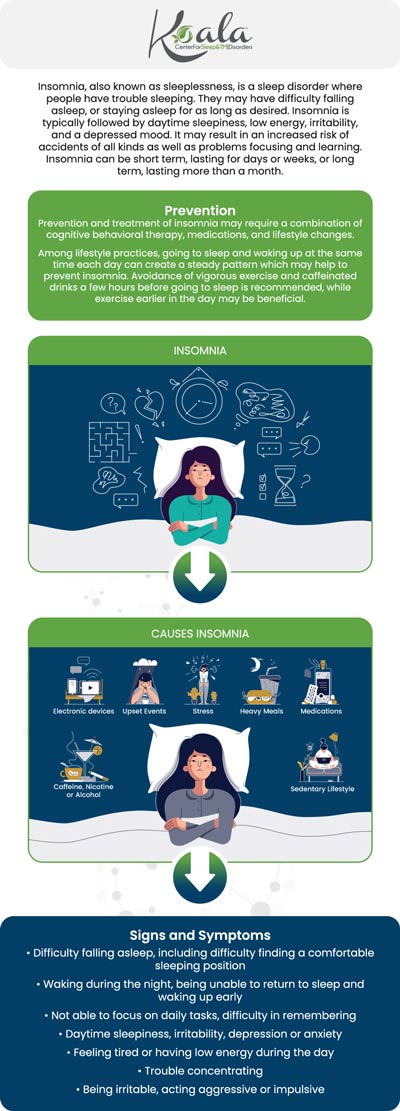Childhood Insomnia Treatment Clinic Q&A
If your little one is suffering from insomnia, come to Koala® Center For Sleep & TMJ Disorders. For more information, call us or visit us online to book an appointment. We have convenient locations across the U.S. in Bloomington IL, Peoria/Dunlap IL, El Paso TX and Wausau WI.




Table of Contents:
How common is childhood insomnia?
What are the symptoms of pediatric insomnia?
When should I take my child to the doctor for not sleeping?
How do you fix childhood insomnia?
Childhood insomnia is defined as the inability to fall asleep or stay asleep and is typically diagnosed in children when sleep problems occur more than twice a week for several weeks. It is a frustrating and sometimes distressing experience for children and their parents. Parental concerns about their child’s sleep may cause them to worry excessively, which may contribute to insomnia symptoms in parents.
Childhood insomnia is a condition that causes children to have difficulty falling and staying asleep. Because sleep is vital to health and well-being, children who are unable to get enough sleep are at risk for a range of problems, including academic difficulties, behavioral issues, and physical health problems.
While it is more common in adults, children can develop chronic insomnia; an estimated 10 percent of adolescents (ages 10 to 19) have chronic insomnia. Chronic insomnia is characterized as trouble sleeping on a regular basis (several times per week) for several months in a row.
The symptoms of pediatric insomnia are slightly different from the symptoms for adult insomnia. Children exhibit symptoms of insomnia differently for a number of reasons. For example, fatigue typically causes brain fog and lack of concentration in adults, whereas children more often exhibit signs such as increased fussiness and whining, as well as lack of excitement. In addition to this, children may also experience the following:
– Behavioral health issues like depression or problems concentrating (may resemble ADHD)
– Difficulty falling back asleep once awake
– Excessive drowsiness or grogginess during the day
– Resisting going to sleep
– Worrying about nighttime
– Trouble falling asleep
– Waking up during the night
– Waking up early (before sunrise)
While an occasional night or two of poor sleep is normal for most children, constant sleep disturbances or unusual symptoms that frequently prevent a good night’s sleep are a cause for concern and should prompt parents to seek help from a medical specialist. Schedule a consultation if your child:
– Struggles to get to sleep
– Struggles to stay asleep
– Feels tired in the day, even after a full night’s rest
– Has difficulty doing regular daytime activities
– Snores loudly
– Struggles to stay awake when inactive
– Has difficulty paying attention or concentrating
– Has performance problems at school
– Has difficulty remembering things
– Has slowed responses
– Has difficulty controlling their emotions
Treatments for childhood insomnia are customized to each child’s condition and may include a combination of therapies and lifestyle changes, as well as dietary changes or supplement recommendations. Primary insomnia, which occurs without a known cause, can be more complex to treat; treatment for secondary insomnia, in which the cause is known and identified, involves addressing the underlying concern. Therefore, treatment plans can look very different from one child to the next. In cases where the cause is unknown, the initial recommended treatment is lifestyle modifications, such as dietary changes, changing sleeping environment/improving sleep hygiene, and increasing levels of physical activity.
In some cases, over-the-counter medicines or supplements may be recommended. These are useful in various situations, including for relieving nasal congestion (improving airflow during sleep) as well as for reducing the symptoms of restless legs syndrome (iron deficiency is linked to RLS).
Several therapies, such as CPAP, oral appliance and TENS, are also safe and effective for the treatment of childhood insomnia.
If your little one is struggling to get a good night’s sleep, bring them to Koala® Center For Sleep & TMJ Disorders. Our sleep specialists are dedicated to improving your child’s quality of sleep, so you can sleep easy, too. Call us today to book an appointment at our childhood insomnia treatment clinic, or visit one of our locations: we serve patients from all across the United States.

Additional Services You May Need
▸ KoalaKIDZzz®
▸ Sleep Apnea
▸ Snoring
▸ TMJ Disorder
▸ Fatigue
▸ Sleep Disorders
▸ Weight Loss
▸ CPAP Alternative
▸ Oral Appliances




